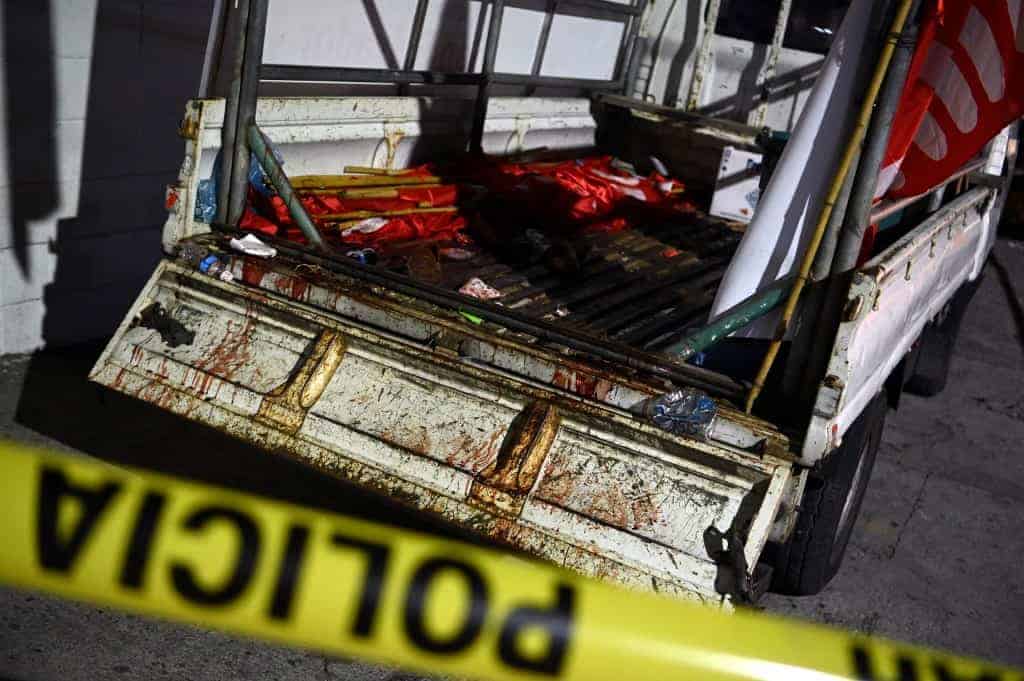El Salvador, still raw from a civil war that ended three decades ago, united to preserve peace in its upcoming elections after a deadly attack during the campaign.
Sunday, two supporters of the opposition political party, the Farabundo Martí National Liberation Front (FMLN), died after a bullet attack against their vehicle.
“Faced with this crime that causes the entire country to mourn without distinction of political colors, the only worthy position is the defense of peace,” the Central American University (UCA) stated in a statement.
A security agent, a driver and a private guard, all employees of the Ministry of Health, were arrested and charged with the crime.
Universities, civil society, businessmen and Congress condemned the act of violence. The voices were joined by the United States embassy and the European Union mission.
The incident came days after Salvadoran President Nayib Bukele said the peace accords signed between the army and the guerrillas — which ended the civil war in 1992, after 12 years of fighting — were a “farce.”
A setback for peace
The attack “is definitely a setback,” because it recalls the political violence that was typical during the civil war, said Laura Andrade, director of the UCA’s Institute of Public Opinion.
After the deadly attack on Sunday, the Supreme Electoral Tribunal (TSE) on Tuesday asked the UN, the European Union (EU) and the Organization of American States (OAS) to send observers for the elections.
The greatest risk, according to Andrade, is that in the country “tolerance as one of the fundamental pillars of a democratic state will be annulled.”
Meanwhile, the coordinator of the NGO Human Rights Commission (CDHES), Miguel Montenegro, asked the Prosecutor’s Office, the Electoral Court and the Human Rights Ombudsman “to act forcefully in a preventive manner so that proselytism does not get out of control.”
Marking distances with the right and the left, the party promoted by Bukele, New Ideas (liberal, conservative), is the favorite to have a majority in Parliament in this month’s elections.
Accusations of hateful messages
The Legislative Assembly, dominated by the opposition, lashed out at President Bukele and Vice President Félix Ulloa. In a statement, it asked them to “refrain from continuing to send hateful messages to the population” and to “seek social harmony and preserve peace.”
The right-wing deputy, Ricardo Velásquez, went further and proposed studying the “incapacity” of the president for the position.
Eleven civil society organizations, including the prominent National Association of Private Enterprise (Anep), also accused Bukele of spreading hateful messages dangerous to democracy.
Faced with the accusations, the government responded with a television message, where it recalled the confrontation that took place in the past between the Nationalist Republican Alliance, which ruled the country between 1989 and 2009, and the FMLN, which was in power between 2009 and 2019.
“What hatred are they talking about if it was they and their parties who always promoted hatred by inciting the people to kill each other?” the executive said.
The government suggested that both sides “heated the spirits of their militants to create confrontations” and “continue to promote violence by shouting in anger against the president and his cabinet.”
The director of the Foundation for Studies for the Application of Law (Fespad), Saúl Baños, believes that “it is irresponsible” to request the disqualification of the president or to blame him.
“The political parties are equally responsible” for the situation, he considered. He warned that violence “scares” voters and can generate abstentionism.
Some 5.4 million Salvadorans will elect on February 28 the 84 legislators of the unicameral Congress, as well as the 262 mayors of the country.
They will also choose a score of deputies from the Central American Parliament (Parlacen), an institution dedicated to regional integration.
The atmosphere remains tense.
“The devil is loose in El Salvador, there are many demons loose. We must ask God to liberate the country from Satan in this time of pandemic and in this time of the electoral campaign,” Cardinal Gregorio Rosa Chávez assured.






